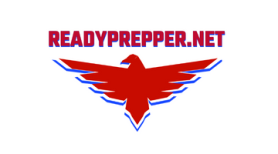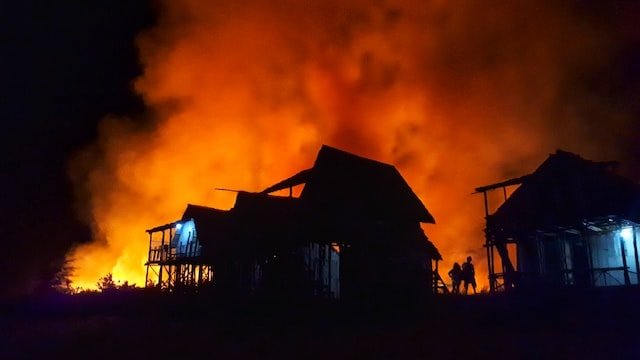This post contains affiliate links.
When the next disaster strikes, you probably won’t be ready. From extreme weather events like tornadoes and hurricanes to severe earthquakes and volcanic eruptions, disasters happen with alarming frequency. If you live in an area where these types of natural disasters are common, you know how destructive they can be.
Prepare your Family for a Disaster With These Tips
Fortunately, there are some things you can do to improve your protection and prepare your family for a disaster, especially when so many dangers are possible in today’s environment. There are many things to consider when you want to be ready for anything. Today we’ll have a look at 6 things that I believe people can miss when starting to prepping their loved ones for a disaster or any emergency situation.
1. Get to know your local emergency services
Most of the time, you won’t need to contact 911, but it’s important to understand how your local emergency services operate. You’ll know how to contact them in an emergency, of course, but the process should be much less nerve-wracking if you know what to expect.
For example, some communities have mobile phone apps for preppers that can help you navigate the emergency service’s phone tree. In other areas, you may be able to press “9” on your phone to automatically transfer you to emergency services. Doing your research can help you avoid feeling as if you’re out of your element when a disaster hits and be on top of things in preparing your family for a disaster.
2. Have a plan for where you’ll meet up
An important aspect when preparing your family for a disaster is preparing for the worst in advance. When a disaster strikes, you have a small window of opportunity to evacuate your area and meet up with your family members. If you have a plan for where you’ll meet up if you have to evacuate quickly, you’ll be much less likely to get turned around and separated from your loved ones. Many preppers choose to meet up at a designated “bug-out location,” like a friend’s house or a safe parking lot. If you have this in place, you can hit the road and be in a safe place with your family in a matter of minutes. What are you going to say when you get there?
Whether you’re meeting up with family or friends, it’s important to have an emergency plan of what you’re going to say and do next. You don’t want to just show up and have everyone be confused as to why you’re there and what you’re doing at that moment.
3. Stock up on food, water, and supplies
When an earthquake or other natural or man-made disaster strikes, it’s not uncommon for grocery store shelves to be empty. That’s why it’s important to stock up on food, water, and supplies in advance. If you have enough for a few weeks, you’ll be able to last much longer without running out of essentials for survival.
The best way to do this is to start a regular grocery shopping routine. When a disaster hits, you should already be in the groove and know how much you’ll need to get food and water. Make sure that you have a list of things you need to get and a way to keep track of what you have and what you need if you really want to prepare your family for a disaster.
4. Know how to use your equipment and know its limitations
It’s important to remember that even the best-quality equipment is only as good as the person using it. Be sure to set aside time to familiarize yourself with your equipment. Keep your equipment in good working order and stock up on replacement parts ahead of time. Research where you can go for maintenance and how to prevent equipment failure in advance of a possible disaster.
Keep a good inventory of your emergency supplies. This will help you determine the amount you need to prepare in case of an emergency.
5. Learn to build an emergency shelter
One more thing is that you should be able to build an emergency shelter in your backyard if you want to properly prepare your family ready for a disaster. It doesn’t have to be anything fancy. It just needs to protect you and your family from the elements. Even if you don’t have a lot of supplies, you can still build an emergency shelter out of things found around your home. For example, you can use blankets and tarps for walls and roofs. You can also use branches and leaves for flooring. For a more complete guide on building emergency shelters check out the below video guide from Youtube.
6. Don’t forget about personal hygiene and first aid
In the midst of a disaster, you’re probably dealing with a lot of stress. Stress can make it more likely that you’ll forget important things, like personal hygiene and first aid supplies. Personal hygiene is especially important if you are serious about preparing your family for a disaster. You don’t want to attract bugs and rodents, but you also don’t want to attract further danger by smelling bad.
You should be keeping yourself clean, especially your hands. Your hands are where you’ll be touching things, and are likely to have nicks and cuts from broken glass and other debris. Keeping your hands clean can protect you from germs, infections, and other dangers and will protect yourself and your loved ones too.
Recommended First Aid Kit: First Aid Emergency Kit with 110 Pieces
Bottom line
It feels like anything can happen these days. It’s more important than ever to be ready to protect and prepare your family for a disaster and get them to safety. This can be difficult since a lot of people won’t know what to do. These tips will help you get started, and keep you safe in the event of a disaster. Remember, preparedness takes a lot of effort and planning, so don’t get discouraged if you don’t see immediate results. It takes time and effort to get to where you need to be.
Do you agree with this preparedness list? What other things are you performing in order to prepare your family for a disaster? Let others know in the comments section and help us create a community of calm and ready preppers that are prepared for any situation.
More Resources:

